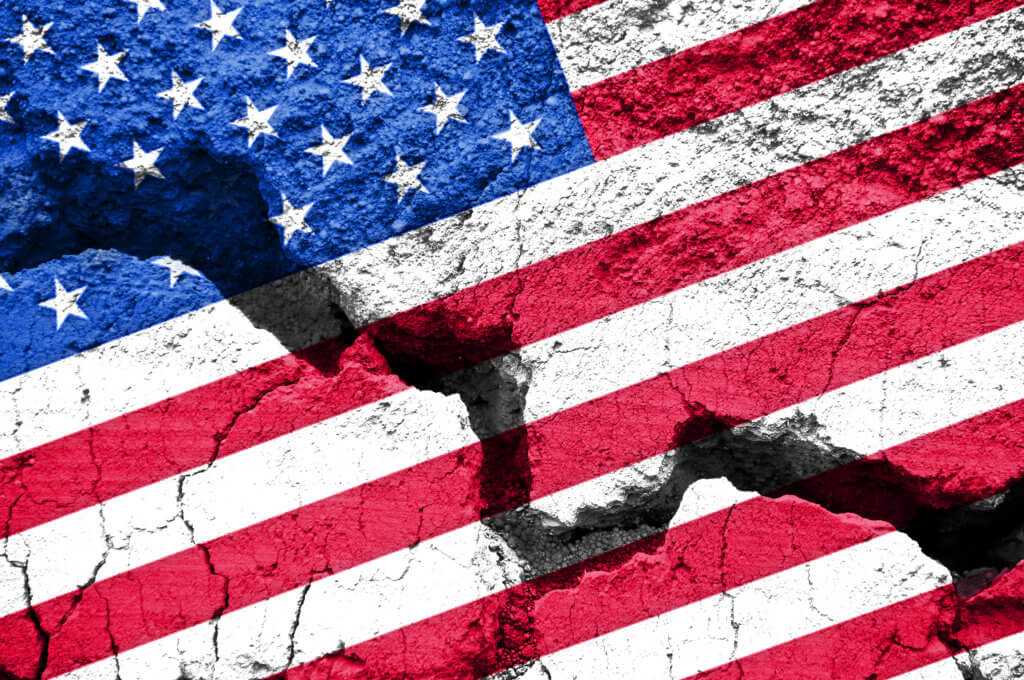‘Human rights are likely to significantly decline in the near future.’
KINGSTON, R.I. — A dire new report reveals the United States has received a near-failing grade when it comes to human rights. The report, conducted by the Global Rights Project (GRIP), sheds light on the state of human rights practices worldwide, presenting a stark reality of widespread deficiencies in respecting basic human rights. The U.S. received a “D” grade on its report card.
Developed by the University of Rhode Island’s Center for Nonviolence and Peace Studies, the report rates each country’s adherence to human rights on a 100-point scale. It reveals that 60 percent of the world’s countries fall short, earning a failing grade (0-59), while only 20 percent receive high marks, scoring an “A” or “B” (80-100). The average global score stands at 50. The U.S. scored a 64, ranking 59th globally.
The report emphasizes that while the U.S. is affluent, its large population size impacts its human rights standing. The Center for Systemic Peace, a democracy monitoring organization, downgraded the U.S. from a full democracy to an anocracy — a middle ground between full democracy and autocracy — following Donald Trump’s presidency.
Even though the U.S. scored highly for several civil and political rights, it still violated many labor rights, women’s rights, and civil and political rights. Researchers say this includes freedom from torture and extrajudicial killings.
“Given what we know about the way a country’s characteristics correlate with human rights, the U.S. falls about where we’d expect it to be,” says Skip Mark, an assistant professor of political science at URI and director of the Center for Nonviolence and Peace Studies, in a university release. “However, if the U.S. is no longer a democracy and democratic backsliding continues then human rights are likely to significantly decline in the near future.”

The GRIP grades assess how countries uphold 25 individual human rights, spanning physical integrity rights like freedom from torture, empowerment rights such as freedom of speech, worker rights including freedom from child labor, and justice rights like the right to a fair trial.
Leveraging data from the CIRIGHTS Data Project — an extensive human rights dataset drawing from various sources, including the U.S. Department of State and Amnesty International — the report provides a comprehensive view of each country’s human rights practices.
The top-ranking countries for human rights include Finland, Australia, Estonia, Sweden, and Austria, while Iran, Syria, Yemen, Venezuela, and Egypt ranked among the lowest.
Analysis revealed several key correlations: democracies tend to fare better in human rights, smaller-population countries exhibit better rights, and wealthier nations demonstrate superior human rights practices.
The report spotlighted a concerning trend — economic rights, such as freedom from child labor and reasonable work hours, are the least protected globally, hinting at the potential for immediate improvement in people’s lives through a focus on economic rights.
Furthermore, an analysis of 40 years of human rights data unveiled a global decline in respecting human rights in the 21st century, with a pronounced downturn during the COVID-19 pandemic. Rights related to human trafficking, freedom of movement, and unionization significantly deteriorated in the pandemic’s aftermath, attributed to economic vulnerabilities.
Moving forward, GRIP researchers aim to issue an annual report, aiming to provide a tool to bolster global efforts in improving human rights.
“This report makes uniquely clear the human rights footprints left by governments in every part of the world,” says David Richards, a professor at the University of Connecticut and co-leader of CIRIGHTS. “Since there’s no helping human dignity without fully understanding the nature and extent of threats to its respect, the information these data bring to light couldn’t be more important.”
You might also be interested in:
- Singapore is the best state in the world? New study ranks America #23!
- Life, liberty, and laptops? Is internet access a basic human right?
- Constitutional confusion: Survey reveals Americans woefully uninformed about their own rights





I couldn’t find the US standing in the Americas’ list. I noted though that Canada was No. 1.
The US should completely withdraw from the rest of the World and we’ll see how much better off everyone will be.